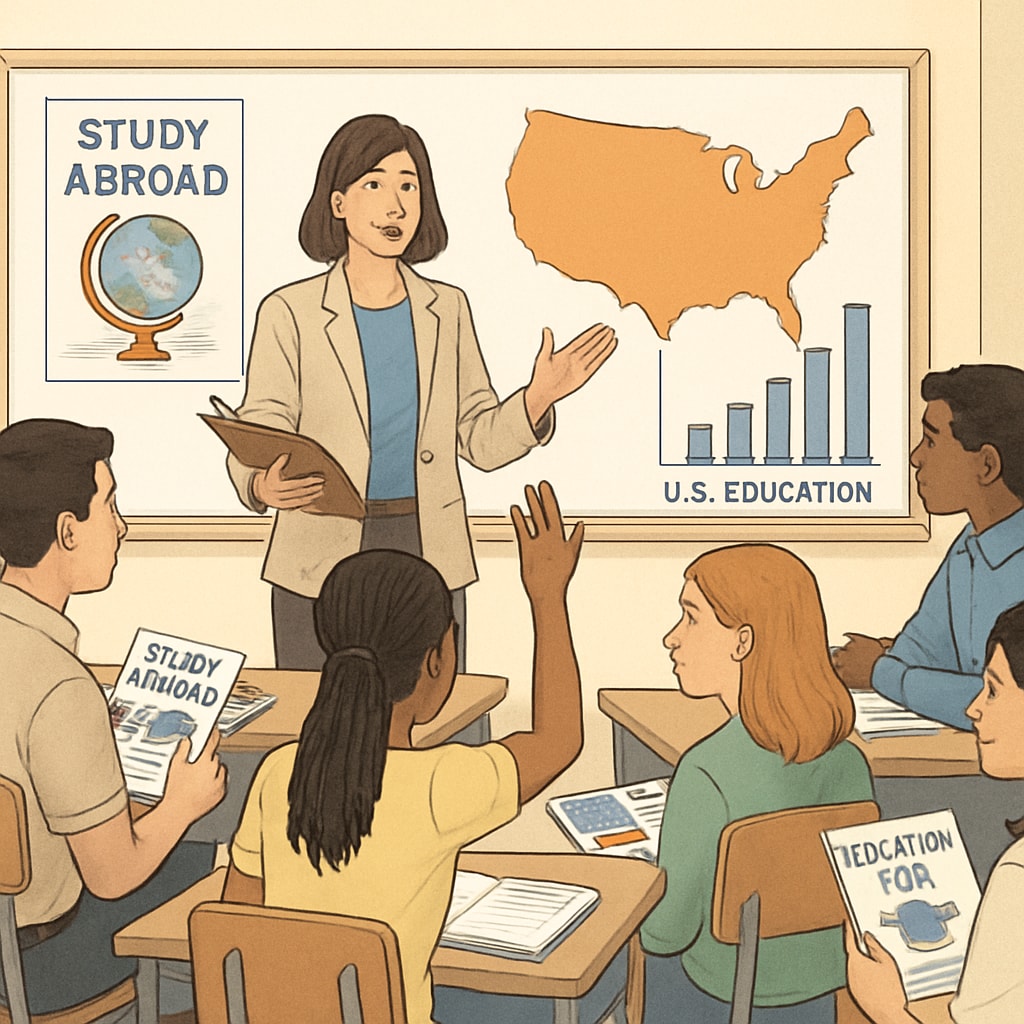Applying to a U.S. Master’s program is an exciting yet challenging step for many international students. Choosing the right study abroad agency can make the process smoother and more successful. A reliable agency provides support in selecting universities, preparing applications, and navigating visa procedures. This article focuses on how to identify trustworthy agencies for U.S. Master’s programs and what to expect from their services.

Why Work with a Study Abroad Agency?
For students aspiring to pursue a Master’s degree in the U.S., the application process can be complex. Study abroad agencies often offer valuable services such as personalized counseling, document preparation, and access to insider knowledge about universities. They can also help you save time by streamlining the process and ensuring all requirements are met efficiently.
Some benefits of working with a study abroad agency include:
- Expert guidance on university selection based on your interests and qualifications.
- Support with drafting essays, recommendation letters, and resumes.
- Assistance with understanding and preparing visa documentation.
- Help with scholarship applications and identifying financial aid opportunities.
However, it’s important to choose an agency that aligns with your needs and goals.
How to Choose the Right Agency for U.S. Master’s Programs
Not all study abroad agencies are created equal. Here are some essential factors to consider when selecting an agency:
- Reputation: Research the agency’s track record and read reviews from previous clients. Trusted agencies typically have established relationships with U.S. universities.
- Transparency: A good agency should clearly explain its services and fees upfront without hidden costs.
- Specialization: Look for agencies that specialize in U.S. higher education and have expertise in Master’s programs.
- Certification: Verify whether the agency is accredited or affiliated with recognized educational organizations.
For example, organizations such as NAFSA (National Association of Foreign Student Advisers) provide resources and certifications that reputable agencies often follow.

Services Offered by Top Study Abroad Agencies
Leading agencies typically offer a range of services to support students throughout their journey. Some of these include:
- University Matching: Agencies help identify universities that match your academic profile and career aspirations.
- Application Strategy: Guidance on crafting compelling applications to maximize your chances of acceptance.
- Visa Assistance: Support with preparing and submitting visa applications, along with tips for interviews.
- Post-Admission Support: Help with accommodation arrangements, travel planning, and orientation to U.S. life.
In addition, agencies often provide updates on changes in admission policies or visa regulations, ensuring you stay informed.
Red Flags to Watch Out For
While most agencies aim to support students, there are cases where agencies may not deliver quality services. Here are some warning signs to be aware of:
- Pressure to commit without clear explanations of services or fees.
- Guarantees of admission, which could indicate unethical practices.
- Lack of communication or responsiveness to your questions.
- Unverifiable affiliations with universities or educational bodies.
Always trust your instincts and conduct thorough research before choosing an agency.
Final Thoughts: Setting Yourself Up for Success
Choosing the right study abroad agency is vital for ensuring a smooth transition to studying in the U.S. for your Master’s degree. By focusing on reputation, transparency, specialization, and certification, you can find a reliable partner to guide you through this exciting journey. Remember to stay proactive, ask questions, and make informed decisions to achieve your academic and career goals.
For more information on accredited agencies, visit trusted educational resources like Britannica’s education section.
Readability guidance: Use short paragraphs and bullet points to summarize key points. Incorporate transition words (e.g., however, therefore, in addition) for smoother flow throughout the article.


